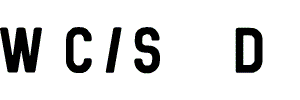As you go…
roads under your feet
towards the new future
As you go… roads under your feet, towards the new future is a long-term project and research inquiry that reflects on the Belt and Road Initiative and how it will alter the aesthetics and practices of everyday life in different local contexts. The project was conceived and initiated by Biljana Ciric in 2019 after conducting curatorial research in East Africa, Central Asia, and several Balkan countries where project is situated.
The inquiry is structured as a long-term research project over a period of three years through research cells of organizations, institutions and individuals: What Could Should Curating Do (Belgrade), Moderna Galerija (Ljubljana), Rockbund Art Museum (Shanghai), Times Museum (Guang Zhou), ArtCom (Astana), Robel Temesgen and Sinkneh Eshetu (Addis Ababa), and The Public Library (Bor). Research cells vary from small-scale, single person organizations, to state and private museums; the differences produced by their various roles and voices, within their respective local contexts, being not only important when considering [the politics of] knowledge production, but also crucial to the premise of the project.
The project does not attempt to pose yet another critical investigation into Chinese colonialism but rather, seeks to unpack the complexities these regions are dealing with, which are also leading to their current connections to the BRI through established commonalities. These include socialism, non-aligned legacies (and here, we are not only talking about the non-aligned movement, but also the relationships with China and other African and Asian countries during the twentieth century), neo-geopolitical settings, economical influences (especially that of the Chinese and Arab world within localities of similar patterns, that have even employed the same companies through different regions), being an agent of its own culture, and the recent COVID-19 pandemic.
Being within the conditions of a pandemic seems almost even more relevant when thinking about the intimacy of cells (in times when we believe we must abide by social distancing and separation), and how we perform the process of transformation toward a possible co-immunity.
Will we be able to decolonize our anthropological gaze from looking at the “other” from a distance, and turn the object of study into something we can engage with, in times when language differences spark fear, as discrimination makes us strangers among ourselves?
The configuration of cells through long-term engagement seeks to emphasize different knowledge structures through collaboration, not only with artists but also architects, writers, anthropologists, and activists who are undertaking research within the project.
This project stands as an important reminder that the BRI will cultivate connections that will be impossible to channel and control through the mainstream narratives of any state—but these gaps will enable more meaningful interactions that is process-oriented rather than outcome-driven.
The first stage of the project began in February 2020, with the meeting of partner cells in Addis Ababa and the first public presentation. During this stage of the project, a number of local case studies have been initiated, and you can find more about the research project here: http://wcscd.com/index.php/projects/
The online journal of the project follows and shares works in progress of research, but also gives a platform for visibility in times of unrest (something many of the localities have been dealing with since the beginning of the pandemic):
http://wcscd.com/index.php/wcscd-curatorial-inquiries/as-you-go-journal/
The research project On Cosmo-technics and New Geopolitics has been done in collaboration with Yuk Hui and researchers Sum Collective and Geocinema. Other contributors to the project include Hu Yun, Chen Liang, Sinkneh Eshetu Zeleke, Aziza Abdul Fetah, Sarah Bushra, Marija Glavas, Robel Temesgen, Jelica Jovanovic, Alex Ulko, Jasphy Zheng, Aigerim Kapar, Astrobus Ethiopia among others.
The first stage of the project has been supported by the Foundation for Arts Initiatives, CURTAIN (Rockbund Art Museum), Austrian Cultural Forum, Curatorial Practice (Monash University Art, Design and Architecture), and the Australian Government Research Training Program Scholarship.
For more info pls contact:
what.could.curating.do@gmail.com
